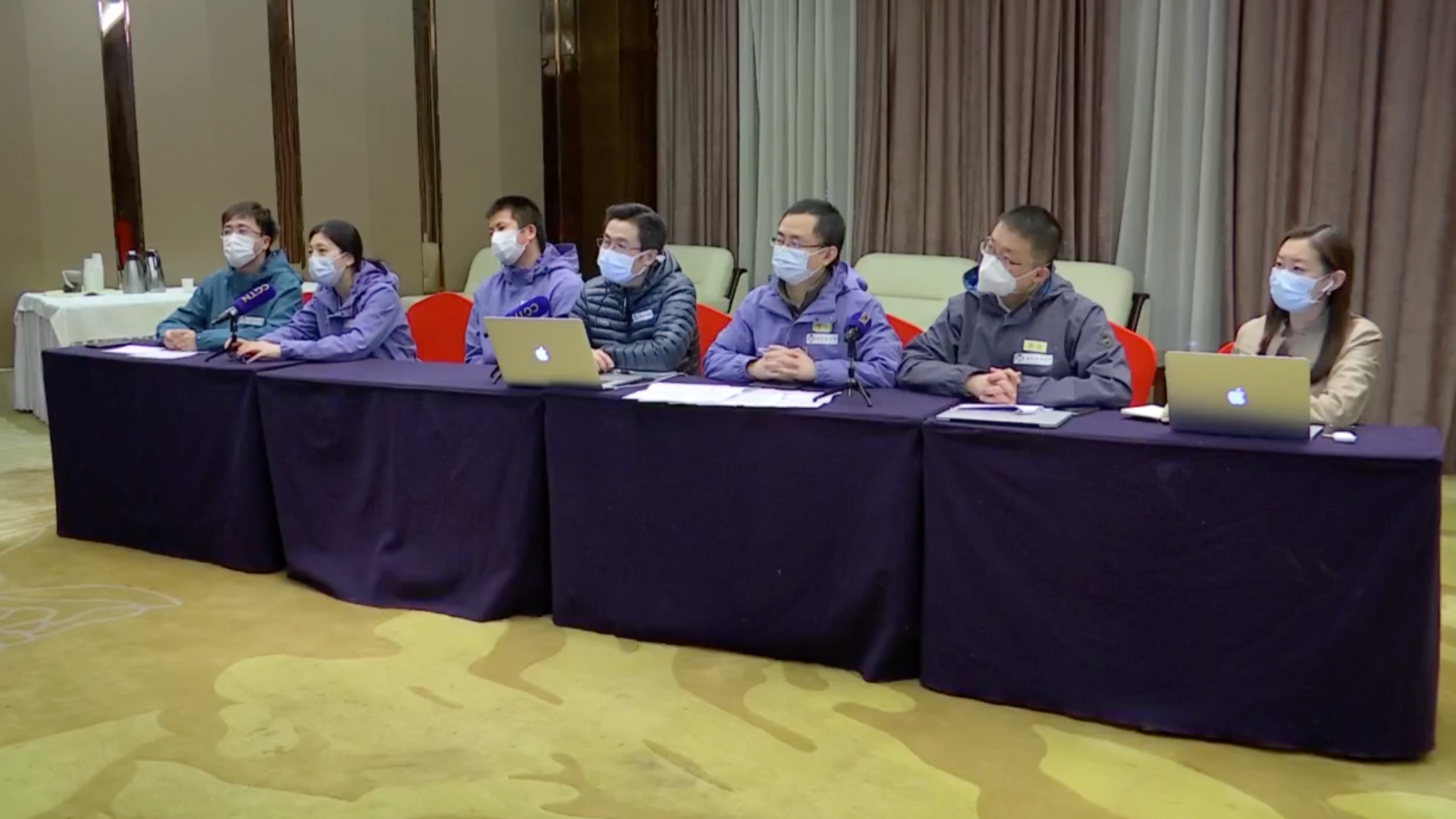Editor's Note: The World Health Organization (WHO) declared COVID-19 a pandemic on March 12. As of April 3, over 200 countries and regions have confirmed more than 1,000,000 cases worldwide, according to data from John Hopkins University. CGTN's live program "COVID-19 Frontline" invites medical workers and experts from central China's Wuhan and all over the world to share their experiences and take questions from social media users, in the hope of providing more information to those who are battling against the pandemic.

Chinese doctors from Peking Union Medical College Hospital share COVID-19 treatment experience with Israeli doctors from Sheba Medical Center during a livestream on CGTN. /CGTN Screenshot
Chinese doctors from Peking Union Medical College Hospital share COVID-19 treatment experience with Israeli doctors from Sheba Medical Center during a livestream on CGTN. /CGTN Screenshot
How does China treat serious COVID-19 patients? Are anti-interleukin-6 agents for HIV effective in treating the disease? What's the latest situation of the epidemic in China? Will there be a second outbreak as the pandemic worsens worldwide?
In the latest episode of CGTN's live program "COVID-19 Frontline," Chinese doctors who have been treating critically ill patients in the country's once hardest-hit city Wuhan since February, answered questions and shared their firsthand experience with their Israeli counterparts.
Wednesday's program has brought together the Chinese medical professionals from Peking Union Medical College Hospital (PUMCH), one of China's top hospitals, and Israeli doctors from Sheba Medical Center.
Live: Chinese frontline doctors share experience with Israeli experts
As of Thursday, the number of confirmed COVID-19 cases had swelled above 6,200 in Israel, and the death toll stood at 31. Israeli Health Minister Yaakov Litzman and his wife were confirmed infected with the virus and are in isolation following guidelines, his ministry said on Thursday.
04:56

How does China treat serious patients?
Supportive therapy is the most important for critically ill patients, said Ding Xin, attending doctor of the department of Critical Care Medicine at PUMCH.
He said no antiviral therapy has been very helpful in treating such patients, and they have been treating the symptoms and not the virus itself.
His colleague Chen Huan, attending physician of Department of Critical Care Medicine at PUMCH, echoed the answer.
Chen said that for the critically ill patients, mechanical ventilation is a very important. Besides that, they mainly adopt what they call "comprehensive supportive treatment."
He said many of the patients have complications, such as anti-phospholipid syndrome (APS), which is a disorder of the immune system that causes an increased risk of blood clots. Such patients should be treated with specific medications.
The patients also need nutrition support, which is very important, and special attention should be paid to their electrolyte balance, he added.
Chloroquine, a highly-touted drug for COVID-19, can be prescribed to patients with moderate symptoms, which may help prevent them from getting serious, the doctor said.
01:41

Can anti-interleukin-6 agents for HIV be used in treating COVID-19 patients?
The Chinese doctors said that the efficacy of the drugs need to be studied further, and they do not recommend them.
Anti-interleukin-6 agents are a class of therapeutics. Interleukin 6 is a cytokine relevant to many inflammatory diseases and many cancers.
Dr. Ding gave two reasons why they are not recommended.
Firstly, anti-interleukin-6 agents can last for quite a long time – three or four weeks. So, once injected, it can never be pulled back. It can suppress the immune system for a very long time and lead to very severe secondary infection.
Secondly, interleukin-6 might be the downstream product of the inflammation process in COVID-19 patients. So to suppress it probably is not enough for treating COVID-19 patients.
03:21

Latest situation in China: A second outbreak unlikely
After over three months of hard work, the epidemic has been brought largely under control in China, with few domestic cases, the Chinese doctors said. There are a total of 1,863 existing COVID-19 patients nationwide, with 429 critically ill.
But they remain alert for two things: one is imported cases from other countries to China, the other is the potential recurrence of the epidemic as people go back to work.
But they are confident that another outbreak in the country would be unlikely. "I cannot say it's a complete victory. But the situation is getting better and better," said Cao Wei, a physician of infectious diseases at PUMCH.
In the later programs, more doctors and experts on the frontline in Wuhan will join in to share their experience with their peers from the world. And for those who have questions or confusions, you can also pose your questions with CGTN using #MyOpinionOnCOVID19 on Facebook.